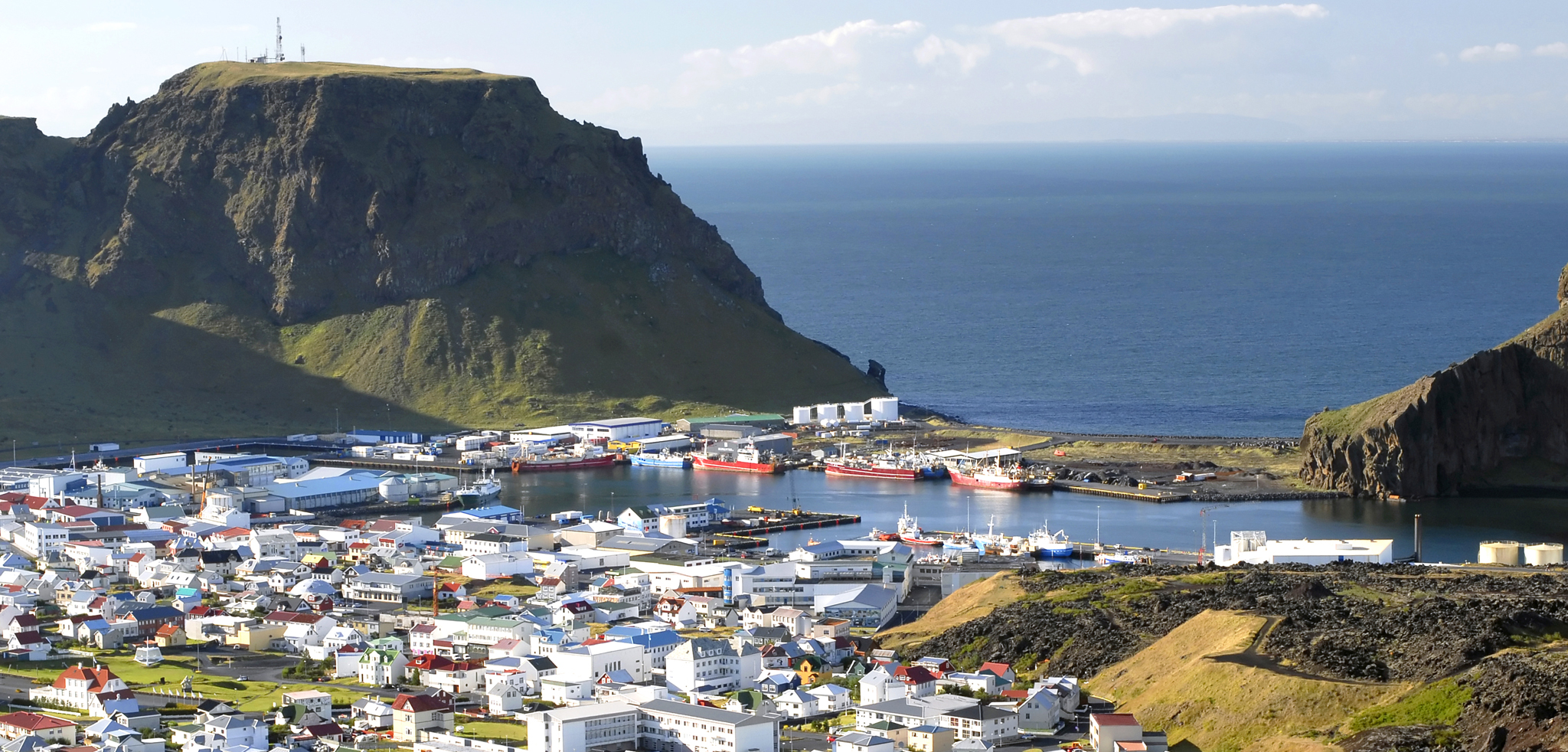OFFSHORE ISLANDS

1. Viðey
 Daily ferries from Reykjavík • www.videy.com
Daily ferries from Reykjavík • www.videy.com
Key historical figures have settled on this flat speck of land just off Reykjavík, among them the country’s last Catholic bishop, Jón Arason, and sheriff Skúli Magnússon, who built Iceland’s first stone house here in 1755. Today it is a stage for the circular Imagine Peace Tower in memory of John Lennon.

Imagine Peace Tower, Viðey
2. Lundey
 Cruises from Reykjavík • www.elding.is
Cruises from Reykjavík • www.elding.is
There are plenty of places called Lundey around Iceland – the name means “Puffin Island” – but this is the closest spot to Reykjavík where you can actually see the birds in question, at least while they are nesting between April and August. You cannot land here, but cruises circle Lundey daily in summer.
3. Vigur
 Daily ferry from Ísafjörður mid-Jun–late Aug • www.vesturferdir.is
Daily ferry from Ísafjörður mid-Jun–late Aug • www.vesturferdir.is
Out in the Westfjords, this remote elongated islet makes a great half-day trip from Ísafjörður to see Arctic terns, puffins and especially eider ducks, whose warm, insulating down is commercially gathered for stuffing duvets and jackets. Only discarded chest feathers are collected and the birds are not harmed.

One of Vigur’s eider ducks
4. Hrísey
 Daily ferry from Árskógssandur (up to 9 times a day) • www.hrisey.is/en
Daily ferry from Árskógssandur (up to 9 times a day) • www.hrisey.is/en
A peaceful and charming island in the Eyjafjörður – one of the longest fjords in Iceland – near the town of Akureyri. Hrísey is well known for its tractor sightseeing tours and rich bird life, including ptarmigans. The waters are also frequently visited by humpback whales.
5. Grímsey
 Ferry safari from Dalvík (summer: Mon–Wed, Fri & Sat at 9am, winter: Mon, Wed & Fri at 9am); many flights, and boats, a week from Akureyri • www.grimsey.is/en
Ferry safari from Dalvík (summer: Mon–Wed, Fri & Sat at 9am, winter: Mon, Wed & Fri at 9am); many flights, and boats, a week from Akureyri • www.grimsey.is/en
Iceland’s northernmost point and the only part of the country actually crossed by the Arctic Circle – meaning that the sun does not set here for a few days either side of 21 June and does not rise at all in late December. The island’s cliffs are full of seabirds all year round making it a great day-trip destination.

A puffin on Grímsey
6. Papey
 Daily ferry from Djúpivogur Jun–Aug
Daily ferry from Djúpivogur Jun–Aug
Papey (“Monks’ Island”) is named after the Christian hermits who are believed to have been living here when the Vikings arrived in Iceland. Today the 2 sq km (1 sq mile) island, rising just 60 m (197 ft) out of the sea, is home to thousands of puffins, a few sheep and the smallest church in the country.
7. Flatey
 Daily ferry from Stykkishólmur–Brjánslækur • www.seatours.is
Daily ferry from Stykkishólmur–Brjánslækur • www.seatours.is
Although hard to believe, this sleepy island, halfway across Breiðafjörður between Snæfellsnes and the Westfjords, housed an important 12th-century monastery. Later it became famous for the Flateyjarbók, an illuminated medieval manuscript featuring the Greenland Saga, which was discovered on the island but is now kept in Reykjavík’s Culture House. The east of the island is a reserve for nesting seabirds.
8. Surtsey
Surtsey dramatically popped out of the waves during an underwater volcanic eruption to the southwest of Heimaey in 1963. Following erosion over the years, the island is now around 1.5 km (1 mile) across. Scientists are studying Surtsey to see how plants and animals colonize new lands. It is a special UNESCO reserve and strictly off-limits.
9. Eldey
About 15 km (9 miles) off Iceland’s southwesternmost tip, Eldey’s distinctive, rocky, sheer-sided cliffs rise 77 m (250 ft) straight out of the Atlantic. The top forms a level platform, home to Europe’s largest gannet colony. Sadly, this is also where the last known pair of great auks were killed in 1844.
10. Heimaey
 Daily ferry to Herjólfur from Þorlákshöfn or Landeyjahöfn • www.eimskip.is
Daily ferry to Herjólfur from Þorlákshöfn or Landeyjahöfn • www.eimskip.is
This 3-km- (2-mile-) long island off the south coast has enough birds, volcanoes, Viking history and walks to occupy you for a couple of sunny days. The town of the same name occupies the north end of the island and is famous for being nearly annihilated during a volcanic eruption in 1973.

Heimaey, a picturesque island town


